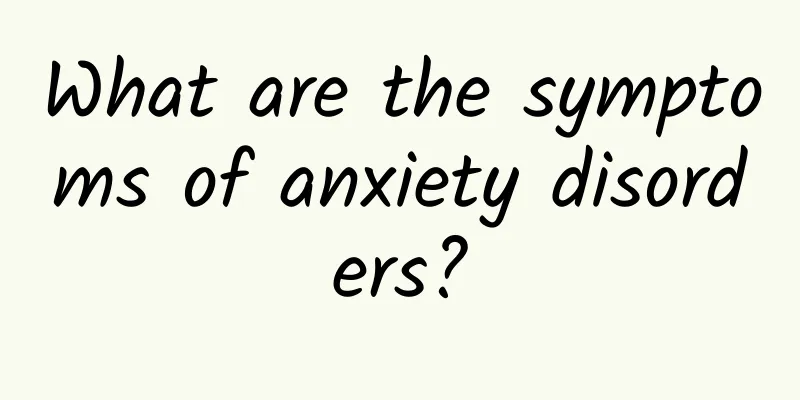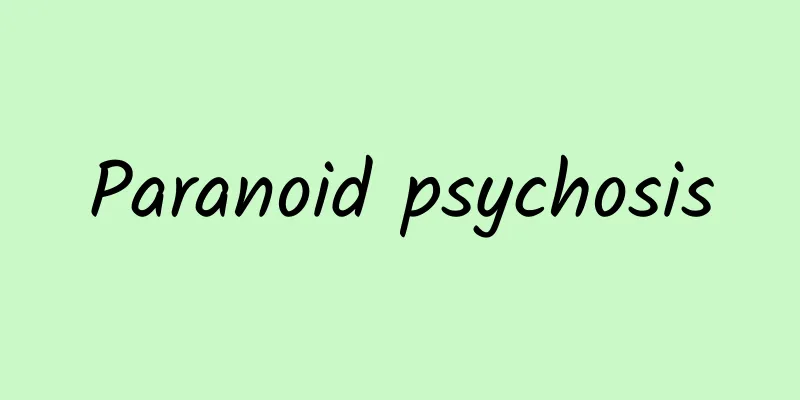What are the symptoms of anxiety disorders?

|
Patients with anxiety disorders will have very obvious emotional manifestations, such as always feeling worried, afraid, and nervous, and when faced with anything, their whole body will be tense, their muscles will be tense, and sometimes they will also have uncomfortable physical conditions such as palpitations, chest tightness, and shortness of breath. 1. Emotional state. Anxiety is an emotional state. The patient's basic inner experience is fear, such as being nervous, uneasy, or even extremely panic or terror. Paroxysmal or persistent occurrence of inexplicable fear, tension, anxiety, phobia, and uneasiness. The patient may have an anticipatory sense of danger, a sense that some kind of disaster is about to happen, or even a sense of death. Many patients also suffer from depressive symptoms and lack confidence and interest in their current and future lives. Sometimes I become emotional and lose my balance, often get angry for no reason, quarrel with family members, and am dissatisfied with everything. 2. This emotion is unpleasant and painful. There may be a feeling of imminent death or of imminent collapse. People with anxiety disorders often feel that they cannot relax and their whole body is tense. His face was tense, his brows were furrowed, his expression was tense, and he sighed. There is actually no threat or danger. The anxiety and fear experienced by patients are very different from reality. That is, there is no actual threat or danger, or, measured by reasonable standards, the anxiety-provoking event is disproportionate to the severity of the anxiety. 3. Physical discomfort. Along with the anxiety experience, patients may also experience some physical discomfort, psychomotor restlessness and vegetative dysfunction. Physical discomfort is often an early symptom of anxiety disorder, such as palpitations, chest tightness, shortness of breath, discomfort or pain in the precordial area, rapid heartbeat, general fatigue, decreased ability to live and work, and simple daily housework becoming difficult and incompetent. Such symptoms, in turn, increase the patient's worry and anxiety, thus forming a vicious circle, seriously affecting people's physical and mental health. The vast majority of patients with mild anxiety disorders also have sleep disorders such as insomnia, early awakening, nightmares, hand tremors, finger tremors or numbness, irregular menstruation, loss of appetite, dizziness, fear and anxiety, and in severe cases, a sense of impending death. |
<<: What are the CT manifestations of hepatic hemangioma?
>>: What are the symptoms of finger tenosynovitis?
Recommend
How to treat joint sprains
Joint sprains are also common in life. Once they ...
What to do if you get irritated by eating spicy food? Eat spicy food with this combination so you don’t get irritated
Many people love spicy food, and for many foodies...
What is the best material for filling a tooth cavity?
If your teeth are loose or there is a hole after ...
Can acute aplastic anemia be cured?
Clinically, aplastic anemia is mainly divided int...
Influenza A H1N1
There are many common diseases in life, and good ...
Fibrous connective tissue hyperplasia
Keloid is a common skin problem caused by the pro...
Folk Herbal Medicine for Lowering Blood Sugar
Traditional Chinese medicine is very profound. Ge...
Acute gastroenteritis, no urination
Acute gastroenteritis is a very common gastrointe...
How to treat itchy and swollen eyelids
For people with sensitive eyes, if they do not pa...
Can pregnant women eat marshmallows?
Cotton candy is a very common snack in our daily ...
Blood in stool and stomach pain
Most people feel particularly panicked when they ...
What are the symptoms of concussion?
After a blow to the head, you will feel a tempora...
Can wormwood and ginger water cure vulvar itching?
Vulvar itching is a common gynecological symptom....
Ingredients of 84 disinfectant
84 disinfectant is a common disinfectant in daily...
Why do you keep coughing?
Cough is a common disease. Coughing does not seem...









